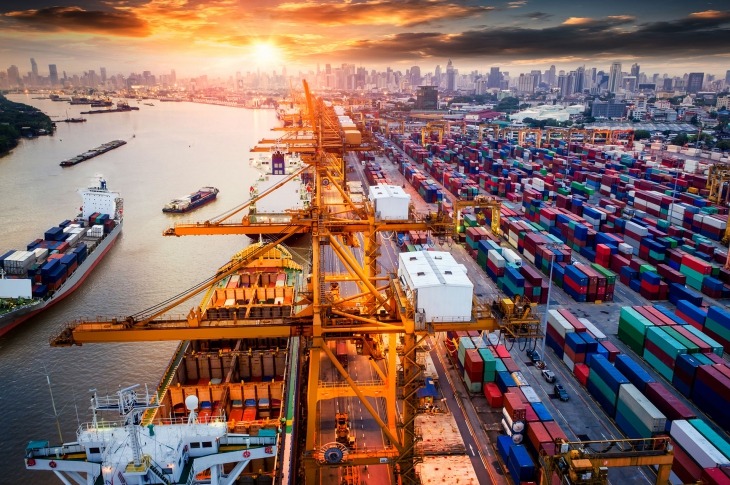The Shifting Landscape of Global Trade: Challenges and Opportunities
The New Dynamics of Global Commerce
In the ever-evolving world of international trade, economic powerhouses continuously adjust their strategies to maintain competitiveness. The intricate web of supply chains, trade policies, and geopolitical tensions has led to significant transformations, affecting markets worldwide. While economies such as the United States, China, and the European Union dominate discussions on commerce, emerging players and evolving trade routes are shaping the future of globalization. Against this backdrop, cities with a long-standing history of financial influence, such as Hong Kong, remain focal points of economic discourse.
The Disruptions in Supply Chains
The Pandemic’s Lasting Impact
The COVID-19 pandemic triggered an unprecedented disruption in global supply chains, exposing vulnerabilities in international commerce. Factories shut down, ports faced bottlenecks, and demand fluctuated unpredictably. Businesses that had long relied on just-in-time manufacturing faced severe shortages, forcing them to rethink logistics strategies. The effects continue to linger, with many companies seeking to diversify production to avoid similar disruptions in the future.

The Shift Toward Regionalization
One of the most significant changes in global trade dynamics is the increasing trend toward regionalization. Countries and corporations are striving to localize production to mitigate risks associated with long-distance shipping and geopolitical uncertainties. The rise of regional trade agreements, such as the Comprehensive and Progressive Agreement for Trans-Pacific Partnership (CPTPP) and the Regional Comprehensive Economic Partnership (RCEP), has reinforced this shift. As nations invest in self-sufficiency, the traditional reliance on a single manufacturing hub is gradually diminishing.
Geopolitical Tensions and Economic Policies
The US-China Trade War
Tensions between the United States and China have redefined global trade patterns. Tariffs imposed by both nations have forced companies to reconsider supply chain dependencies. Many businesses have begun relocating operations to alternative markets in Southeast Asia, including Vietnam, Thailand, and Indonesia, to circumvent high tariffs and mitigate risks associated with political unpredictability.
The Role of Europe in Trade Realignment
European economies have also been adjusting to shifting trade alliances. The European Union, in its quest for economic resilience, has focused on reducing dependency on external suppliers, particularly in sectors such as technology, pharmaceuticals, and energy. Strategic partnerships with African nations and renewed emphasis on domestic production aim to balance economic security with globalization.
The Rise of Alternative Trade Hubs
Southeast Asia’s Growing Influence
As global trade flows shift, Southeast Asian nations are emerging as significant players. Countries like Vietnam and Malaysia have benefited from companies relocating manufacturing operations due to their favorable business environments, lower labor costs, and trade agreements that offer preferential market access. This transition is reshaping investment patterns, with multinational corporations increasingly exploring alternative hubs for production and distribution.
The Expansion of Africa’s Trade Potential
Africa is positioning itself as a critical player in the future of international trade. The African Continental Free Trade Area (AfCFTA), which aims to create a single market across the continent, has the potential to drive economic growth by facilitating intra-African trade and attracting foreign investments. As infrastructure improves and economic reforms take shape, Africa’s role in global commerce is expected to expand significantly.
The Role of Technology in Trade Transformation
Automation and AI in Logistics
Advancements in artificial intelligence and automation are revolutionizing trade logistics. AI-driven supply chain management tools enhance efficiency, predict demand patterns, and reduce operational costs. Automation in warehouses and ports is streamlining the movement of goods, addressing labor shortages, and minimizing delays.
The Growing Impact of Blockchain
Blockchain technology is becoming an integral part of global trade by increasing transparency and security in transactions. Smart contracts enable faster processing of cross-border agreements, while blockchain-based tracking systems ensure greater accountability in supply chains. As trust in this technology grows, its adoption in international commerce is likely to expand further.
The Future of Global Trade
The shifting landscape of global trade is marked by resilience and adaptation. As economies navigate uncertainties, new trade routes, technological advancements, and evolving policies will continue to shape the flow of goods and services. Businesses must remain agile, governments must adopt forward-thinking strategies, and consumers must prepare for an interconnected world where trade patterns are no longer dictated by traditional power centers alone.